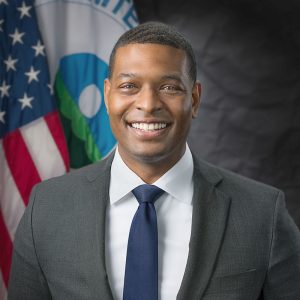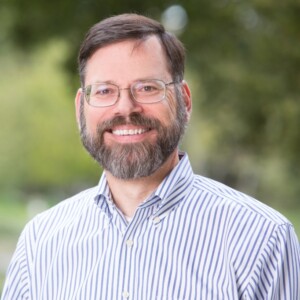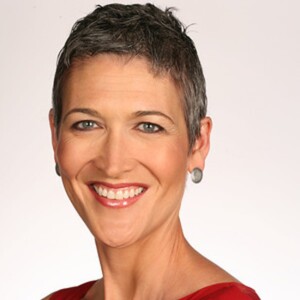
Keystone’s Common Higher Ground Workshop helps professionals in all sectors develop strategies and build skills for effective decision-making and problem-solving within and beyond their organizations. The workshop is designed for leaders and emerging leaders who need to build a shared vision in the face of apparent differences, whether within a single organization, between organizations, within a community, or across society.
Brad Sperber has worked for over twenty years to assist organizations and diverse groups from government, industry, and civil society in solving complex shared problems ranging in scope from local to international. He works as a facilitator, mediator, and strategist across a range of policy areas including public health, education, agriculture, and the environment. He holds a M.Div. from Harvard University and B.A. in history and religion from St. Olaf College.
Q: Keystone’s Common Higher Ground Workshop focuses on collaborative leadership and problem-solving. Why is this focus important now?
A: A lot of traditional approaches to policy-making, deal-making, and community-building are being impaired by a powerful us versus them mentality – by a perception that it’s somehow inappropriate to seek mutual gain. Politicians, journalists, pollsters, and activists have long sought to divide Americans into camps, but that mission now is aided by the fact that more and more of us obtain news and maintain relationships through online platforms calibrated to sort us into tribes based on what we already believe and how we already behave. An increasingly common assumption today is that competition is a more appropriate mindset than collaboration. Some campaigning politicians actually pledge to their constituents never to reach across the aisle if elected, thereby creating the conditions for an unwinnable war. Taken this extreme, we’re in danger of creating a paradigm in which we only want our own boat to float if someone else’s doesn’t. Competition is often an appropriate and even inevitable approach to addressing a given problem, but in many situations we can’t arrive at a sustainable solution without the help and support of others whose interests appear to differ from our own.
Q: What else gets in the way of a collaborative approach to problem-solving?
A: It is increasingly challenging to agree on what is true and even to determine the degree to which factual accuracy is valued by others. The inability to agree on a set of fundamental facts or on acceptable sources of information can make it very difficult to sustain a productive dialogue.
Q: Are you referring to the difference between “fake” and “real” news?
A: The challenge is more complicated than a temptation to discredit information that doesn’t conform to our interests. Keystone Policy Center has always promoted reliance on the best available scientific information when formulating policy, but it has become clear in recent years that data does not drive decision-making as consistently or easily as we might hope. A growing body of evidence indicates that empirical facts and scientific research findings have less influence over what Americans believe and how they behave than many of us used to assume. This realization shouldn’t diminish the value we place on informing negotiations and decisions with the best possible information, but we can’t start with the assumption that the party on the other side of the table trusts the same sources of information we do or will interpret data the way we do. They may come to the table with very different experiences and fears, so we need to begin by understanding the interests and values that underlie their own stated goals and are likely to influence who and what they trust.
Q: People have been studying and teaching about negotiation and problem-solving for decades. Is a “new” approach really needed?
A: This is a natural moment to revisit our mindsets and update our methods. Public conversation has become more disputatious and arguably less productive and efficient than a generation ago. In response to this trend, there are now over 200 organizations focused on promoting the practice of civil conversation. But it’s not just a matter of engaging respectfully with people whose ideas seem to differ from ours. We know more than we did a few decades years ago about the science and art of persuasion – about how people form strong opinions and actually come to change those opinions. Recent research from neuroscience and other fields provide insight into how people are likely to behave and why in situations of conflict (whether real or perceived). It turns out that the current tendency to debate, argue, blame, and shame can be extremely counterproductive.
Q: How does the Common Higher Ground Workshop address these challenges?
A: Leaders and organizations often have to deal with complicated public problems that are beyond their ability to resolve on their own. Maybe they lack needed resources, or they need different kinds of expertise, or their authority isn’t sufficient to resolve the issue without the help of others, or a unilateral solution won’t survive without the support of people who will be affected by it. We’d like to help prepare those leaders (and future leaders) for those situations. Here are some questions we’ll navigate together:
- Is it sufficient to change someone else’s behavior in a given situation, or do you also need to change their mind?
- Will you ever need to interact with them productively again? (And how sure are you of the answer?)
- Who needs to be part of the conversation? Do they already agree on the problem, or on the basics of a solution?
- Do you have relevant values in common? If so, do you prioritize them the same way?
- Does the other party come from a culture similar to yours? (Bear in mind that cultural difference can be a matter of nationality, geographical region, ethnicity, profession, lifestyle, age, etc.)
Learn more about the Common Higher Ground Workshop.





